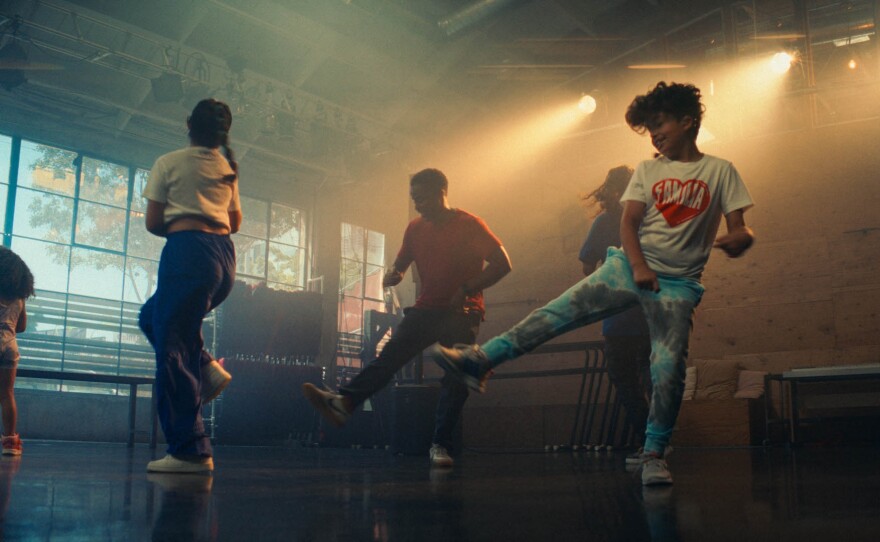Thursdays, Nov. 21 - Dec. 12, 2024 at 8 p.m. on KPBS 2 / Stream now with the PBS app
In this four-part series, multi-talented actor and performer Dulé Hill (THE WONDER YEARS, THE WEST WING) and director Danny Lee (“Who Is Stan Smith?”) take audiences on an emotional and celebratory road trip across the nation to explore the transformative power of the arts. Along his journey, Hill travels to California, the Appalachian region, Texas and Chicago to connect with local visionaries, activists, changemakers and pioneers who are using their artistic passions to foster connection, deepen empathy, and create meaningful change within their communities. THE EXPRESS WAY WITH DULÉ HILL premieres Tuesdays, April 23-May 14, 2024 at 9 p.m.
What would it be like to create art without sight? How does one explore dance through music that cannot be heard? And how can creative expression be used to break down barriers, combat hate and create safe spaces for everyone? As Hill crisscrosses the country, he explores these questions and more, meeting with a wide array of creatives who are challenging traditional narratives, reclaiming space for themselves and their communities and paving a pathway forward for others to follow.
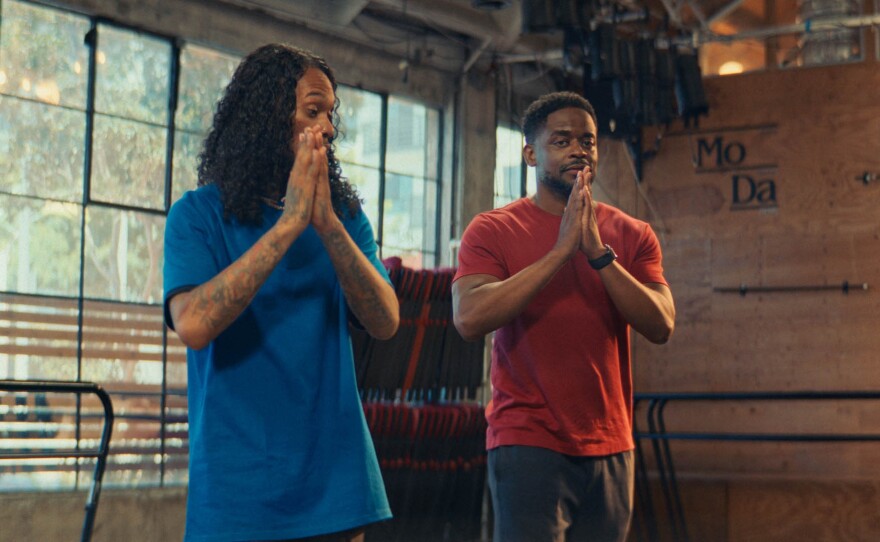
“The power of the human spirit is really an inspiring thing. There are many people in this world who create space out of nothing. They are the ones turning on the light, setting the path, and then guiding others along the journey,” said Hill. “As a lifelong dancer, actor and singer, the arts are what drive me. There's something about when you see yourself reflected that allows you to believe that you exist.”
EPISODE GUIDE:
Episode 1: “California” Encore Thursday, Nov. 21 at 8 p.m. on KPBS 2 - In the Golden State, actor Dulé Hill connects with people who are using art to rewrite their narrative, and the narrative of their communities. As a dancer himself, Dulé never considered that it would be possible for someone to move to a beat that they could not hear. That is, until he meets deaf dancer, Shaheem Sanchez, who is showing the world that the “deaf can dance.”
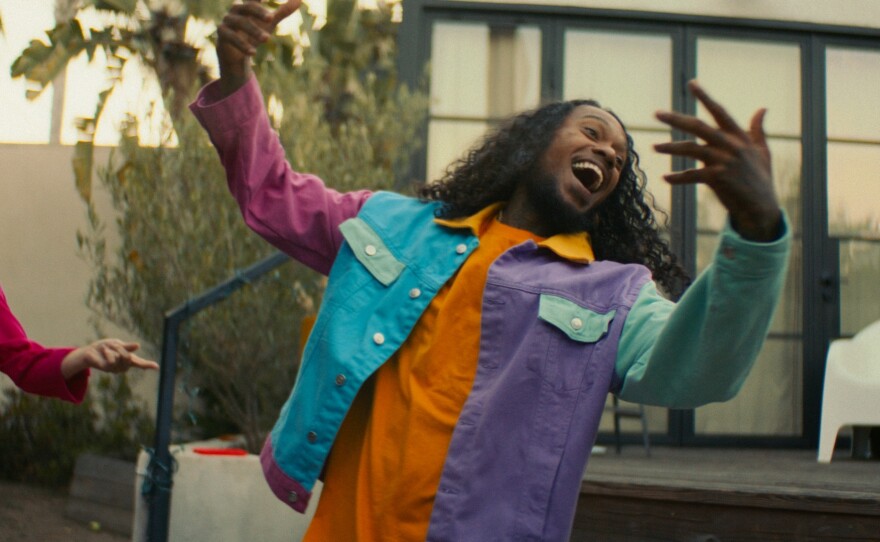
In San Francisco, Dulé meets a different set of artistic pioneers: the Grant Avenue Follies, a cabaret troupe made up of sassy senior citizens. Led by Cynthia Yee, the Follies’ are also activists, keeping alive Chinatown’s rich history, and using their newfound rap skills to combat anti-Asian hate.
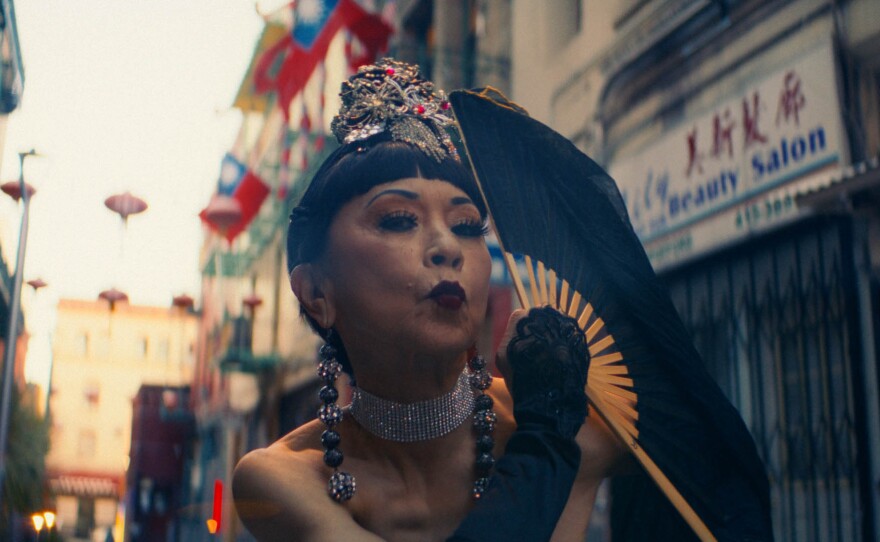
Finally in Los Angeles, Dulé gets his groove on after meeting Carlos Sameniego, the founder of the world's first LGBTQ+ mariachi group, Mariachi Arcoiris, along with his friend Natalia, Mariachi’s only trans woman.

Episode 2: “Appalachia” Encore Thursday, Nov. 28 at 8 p.m. on KPBS 2 - The Appalachian region has some of the highest poverty and addiction rates in the nation and in this episode Dulé connect with artists who are improving life for themselves and their communities through music. First Dulé speaks to Doug Naselroad, who is the founder and director of Troublesome Creek Stringed Instrument Company and co-founder of The Culture of Recovery — a program that assists individuals on the road to recovery from opioid addiction by teaching them to make stringed instruments.
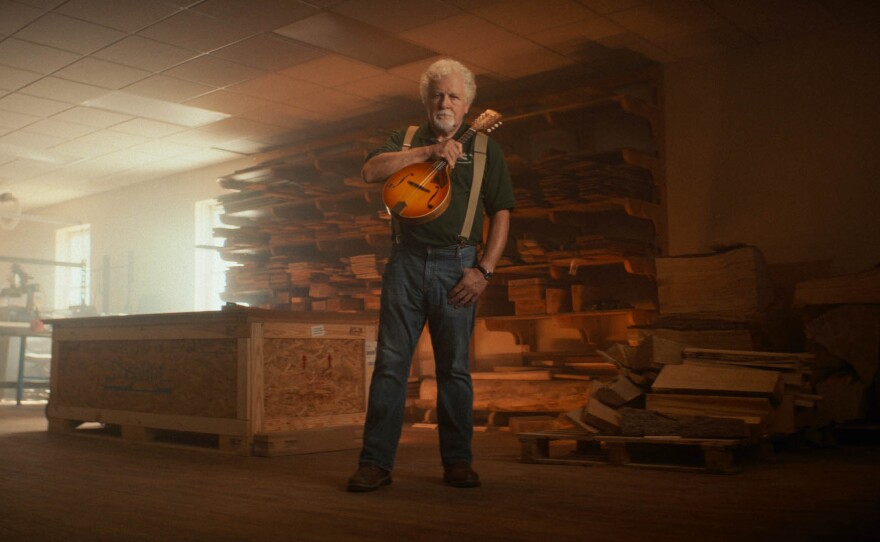
In Johnson City, Tennessee, Dulé learns about the black community’s contributions to traditional American music from Amythyst Kiah, a queer, black, bluegrass musician whose dedication and talents have earned her a Grammy nomination.
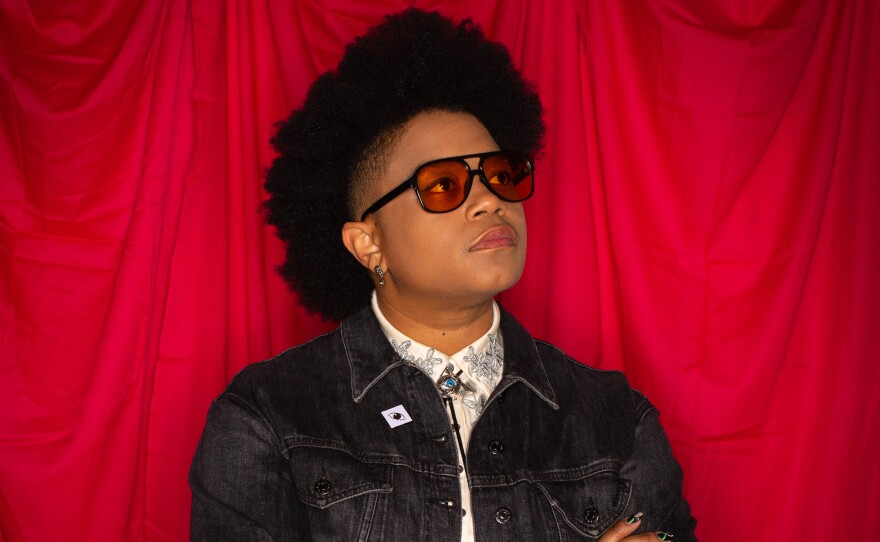
Finally, in Durham, North Carolina, Dulé meets Grammy-nominated artist Joe Troop, the creator of “Latingrass,” a fusion of Latin and American folk music played with traditional bluegrass instrumentation.
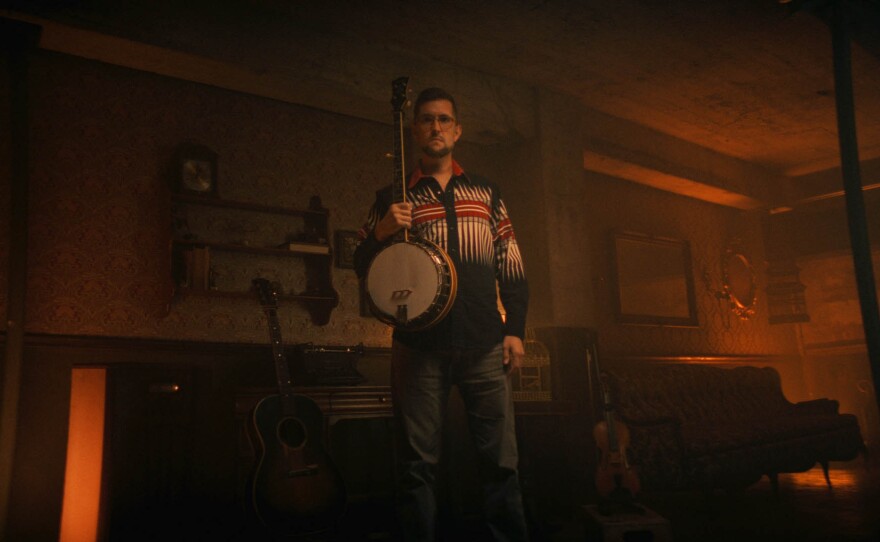
Joe is taking this music to a whole new level by teaming up with Venezuelan musician and asylum-seeking migrant, Larry Bellorin, on a new musical odyssey while standing up against xenophobia and racism.

Episode 3: “Texas” Encore Thursday, Dec. 5 at 8 p.m. on KPBS 2 - In Texas, Dulé connects with three artists, each a leader in transforming their communities. In Houston, Dulé learns the “Mexica” handshake from Abuela M'api Rainflowa, the founder of Houston Aztec Dance & Drum. Rainflowa, who grew up as a devout Catholic believing that she was of Mexican decent, learned in college that she was actually indigenous. Rainflowa teaches Dulé the Aztec Sun Dance, and he later joins her for a sweat lodge ceremony, exploring the spiritual roots of indigenous practices.
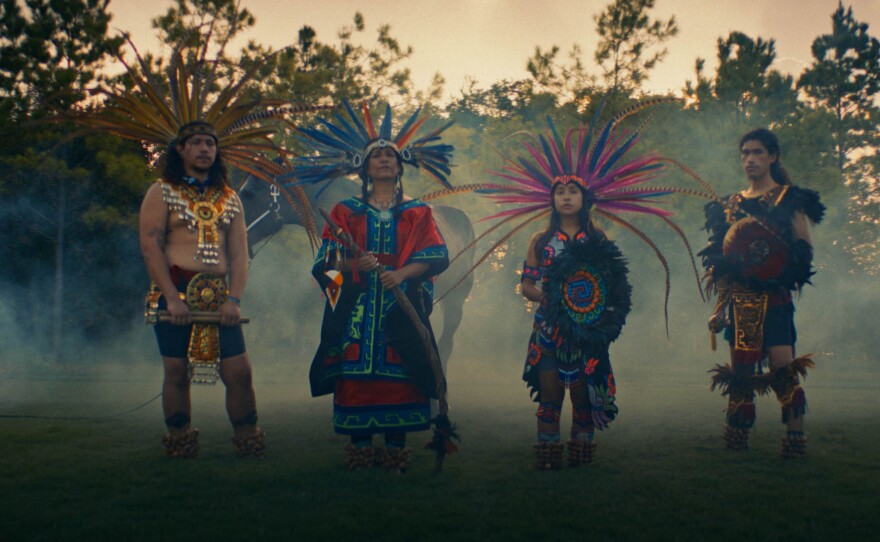
In Dallas, Dulé meets David Lozano, Executive Director of Cara Mía Theatre. Cara Mía uses daring theatrical productions to amplify the Latino experience in the United States including one-woman play featuring Liz Magallanes, an undocumented immigrant, about her experience as a “dreamer.”

And in Denton, Dulé connects with John Bramblitt, a blind painter who lost his vision in 2001 and, as a result, re-taught himself to paint by touch. He currently leads workshops at museums like the Guggenheim, helping others with blindness reclaim their artistic abilities.

Episode 4: “Chicago” Encore Thursday, Dec. 12 at 8 p.m. on KPBS 2 - Chicago is a city known for its rich history and culture, but for some, it’s been marred by crime and violence. In this episode, Dulé meets several of the city’s talented artists to explore why art and activism are often synonymous in the Midwest.
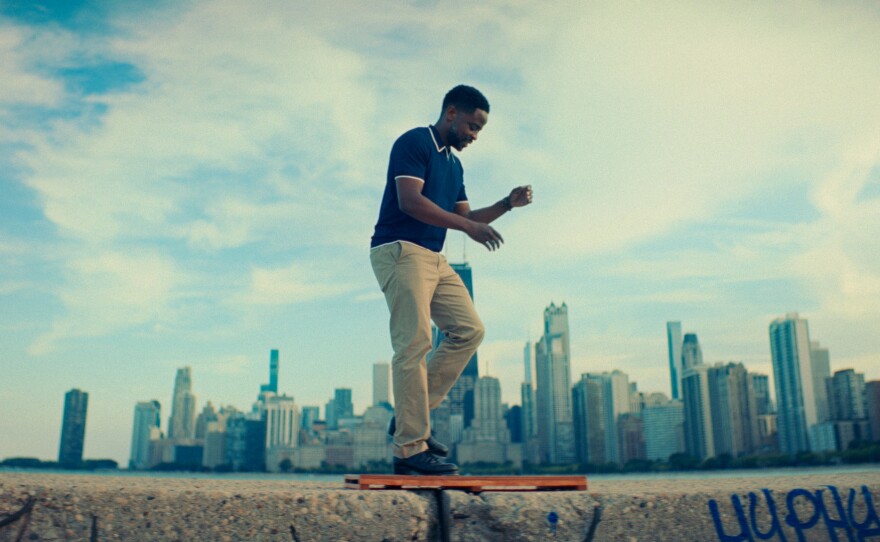
On the South Side of Chicago, Dulé joins a casting session with the Andre Theatre Collective, a group trying to produce their first play written by incarcerated playwrights. The play examines why much of the city has been riddled by crime, especially for those living in Black communities.
Dulé also meets with Vershawn Sanders Ward, founding Artistic Director and CEO of Red Clay Dance, who is creating a space for people of color to be seen and highlighting issues affecting her community, like food inequality, through African Diasporic dance. Dulé also takes the stage with Bassel Almadani, a first-generation, Syrian-American musician who is using his platform to bring awareness to the civil war ravaging his family’s beloved homeland, and the resulting refugee crisis.
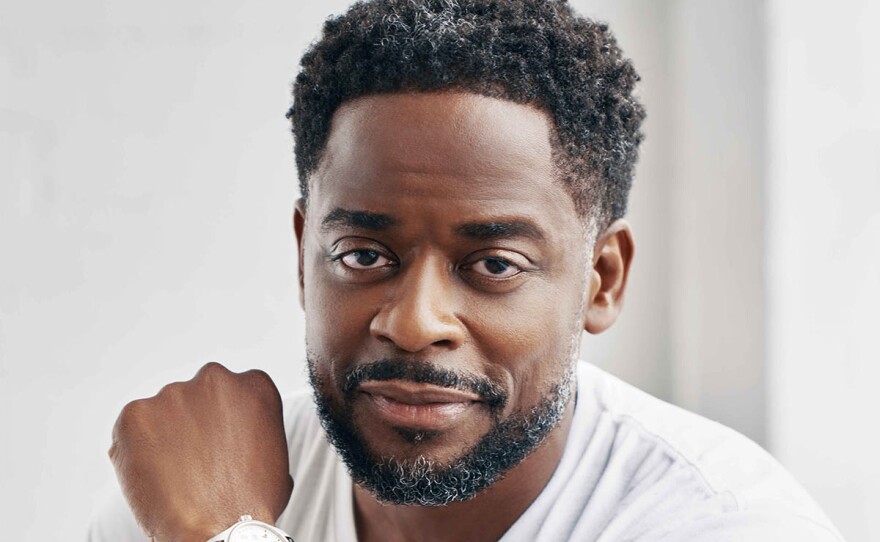
Filmmaker Quote:
“For me as a filmmaker of color, art has not only been a way to be seen, but a deeply transformative force in my life,” said Lee. “As a pillar of American culture, PBS has always impressed upon me the importance of the arts. So to be able to craft a moving series that shines light on the power of creative expression, alongside such a phenomenal talent like Dulé Hill and my team at CALICO, is a dream come true.”
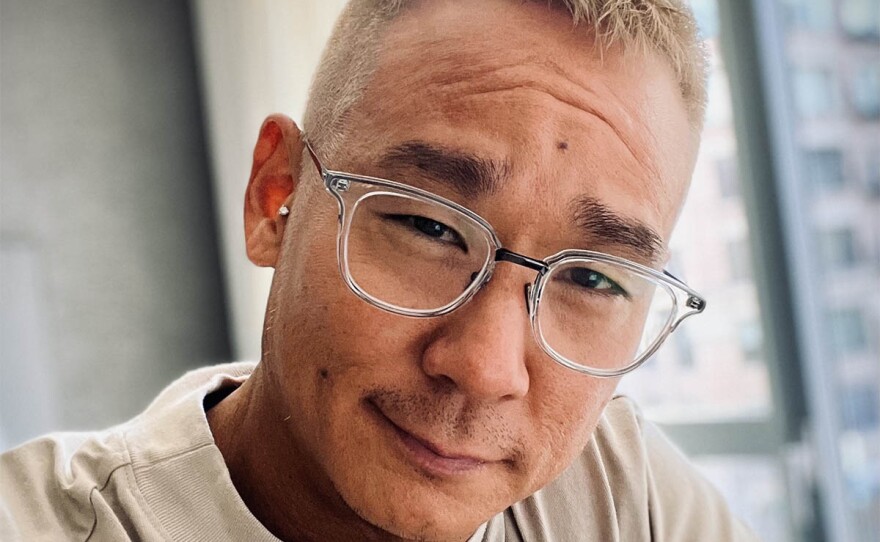
Watch On Your Schedule: THE EXPRESS WAY WITH DULÉ HILL is available to stream on all station-branded PBS platforms, including PBS.org and the PBS app, available on iOS, Android, Roku, Apple TV, Amazon Fire TV, Android TV, Samsung Smart TV, Chromecast and VIZIO.
Credits: Produced by CALICO for PBS. Danny Lee is the director and executive producer. Sophia Kruz is co-executive producer. Jazmyn Simon and Dulé Hill are executive producers, producing under their production company Simon Says Hill. Christopher Howard and Josh Jacobs are also executive producers. Margaret Ebrahim is the executive in charge for PBS.

